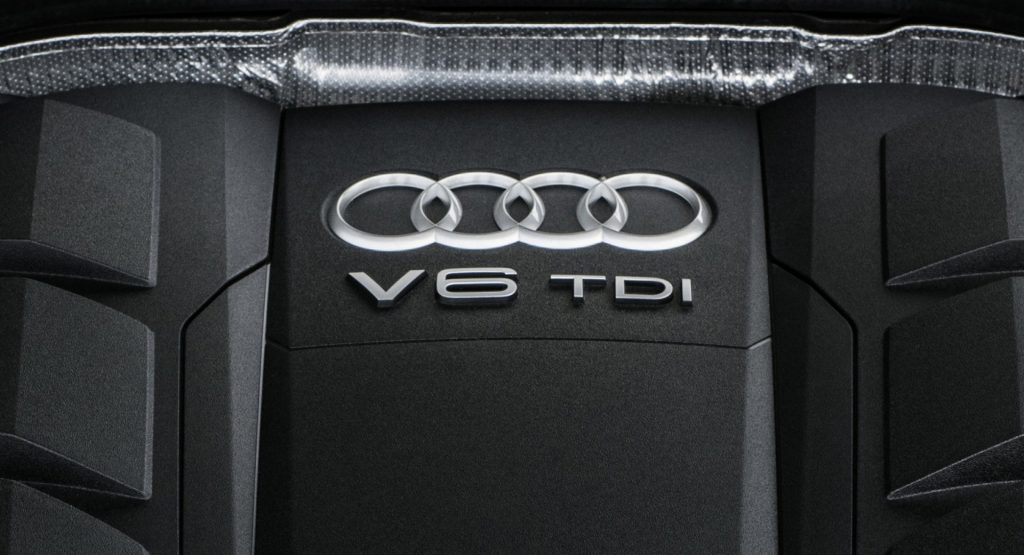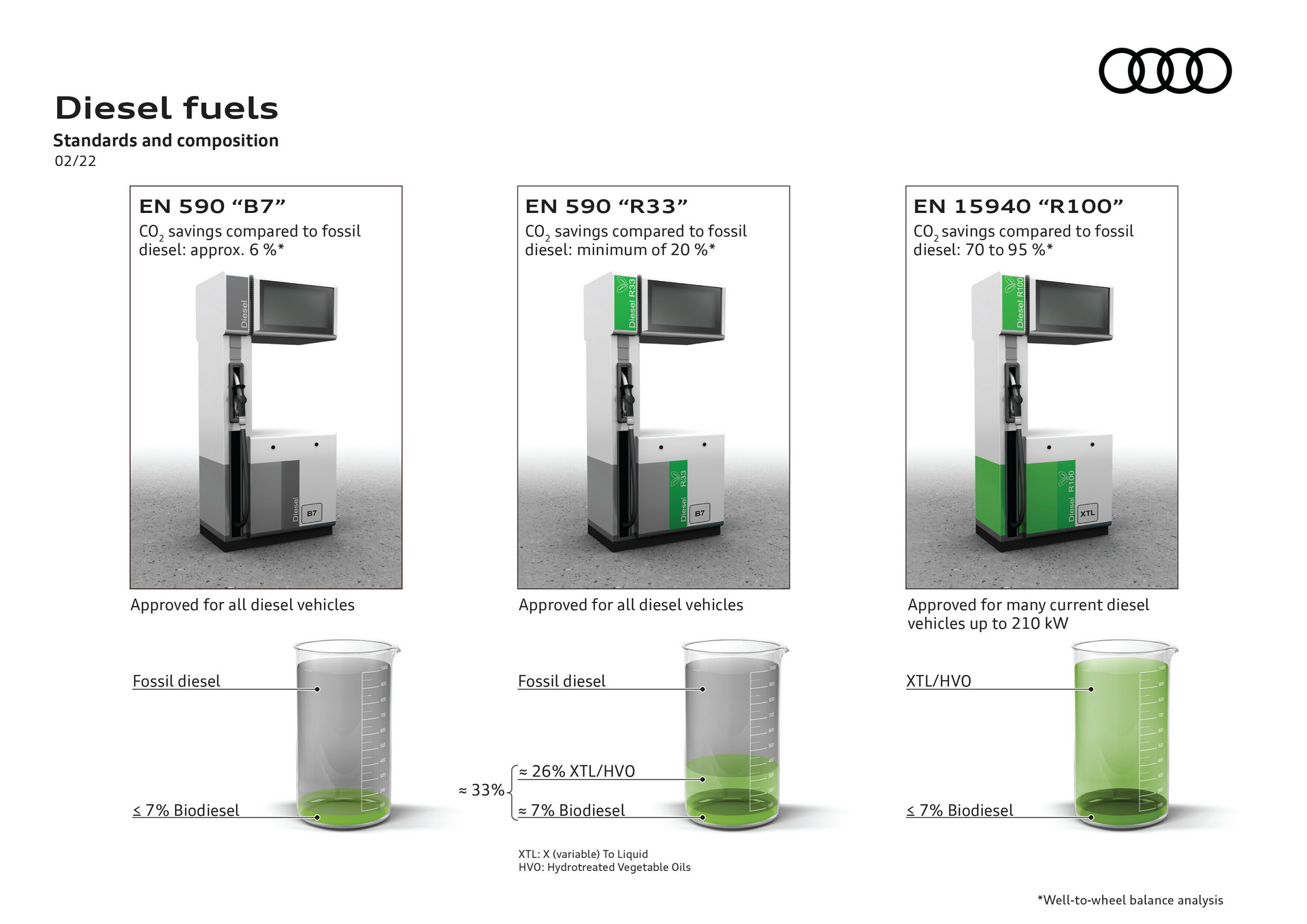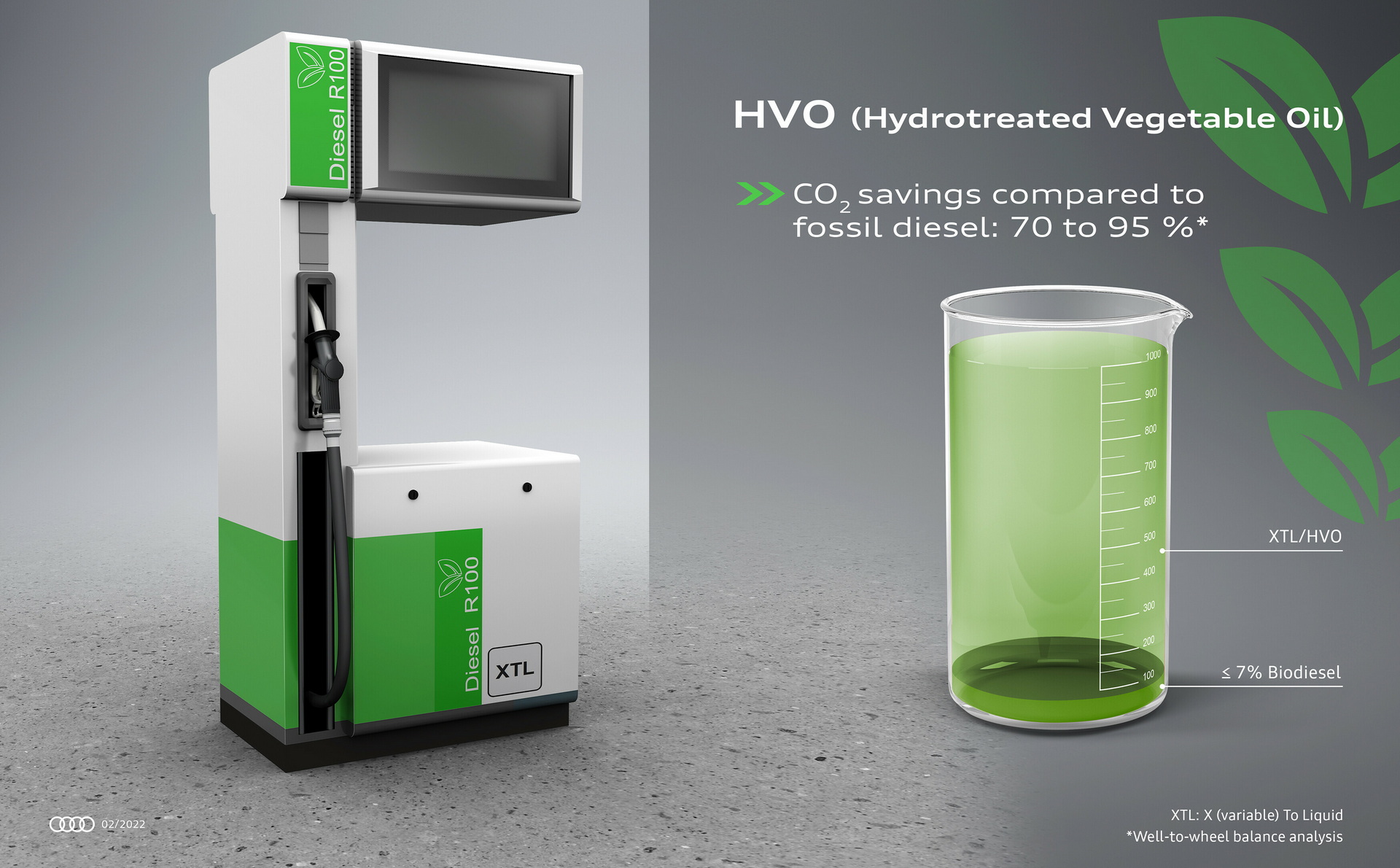Audi, like the rest of the Volkswagen Group, is looking to become carbon neutral by 2050. That mostly means developing electric vehicles but it doesn’t preclude taking smaller, shorter-term steps to try to make its combustion engines cleaner.
To that end, the automaker says that all of its V6 diesel engines that make up to 281 hp (210 kW/286 PS) constructed after mid-February 2022 will be compatible with hydrotreated vegetable oil (HVO), the so-called gold standard of biodiesel. That means that some versions of the A4, A5, A6, A7, A8, Q7, and Q8 be able to run on greener, vegetable oil-based fuels.
“We’re optimizing our existing combustion engine portfolio for more efficiency and lower emissions,” said Oliver Hoffmann, Audi’s chief development officer. “One way we’re doing this is by creating the requisite technical foundations for the use of sustainable fuels such as HVO.”
Read Also: Louisiana Scientists Turn Alligator Fat Waste to Biodiesel
Audi says that HVO enables CO2 reductions of between 70 and 95 percent compared to normal diesel. The fuel can be made from residual and waste materials, such as waste cooking oil from the food industry or residues from agriculture. These oils are converted into aliphatic hydrocarbons, which modifies the properties of the oils to make them useable in diesel engines and gives them a higher cetane rating than traditional fuel.
“As the cetane rating of HVO is around 30 percent higher, the combustibility of the engines is enhanced. The positive effects of this are particularly noticeable when cold starting,” said Matthias Schober, head of powertrain development for V-TFSI, TDI, and PHEV at Audi. “We tested the effects on various components, the performance, and exhaust emissions in specific validation runs before granting approval.”
Naturally, Americans are unlikely to benefit from this novelty because Audi no longer sells diesel vehicles in the U.S. The green diesel is, however, available at more than 600 filling stations around Europe (mostly in Scandinavia).
The Volkswagen Group is also experimenting with other alternative fuels, like e-Fuel. This synthetic gas has already been used in race cars by Porsche and Lamborghini has expressed an interest in the technology. Electricity-intensive to produce, though, its green bona fides are predicated on renewable energy being used at the site of its production.






